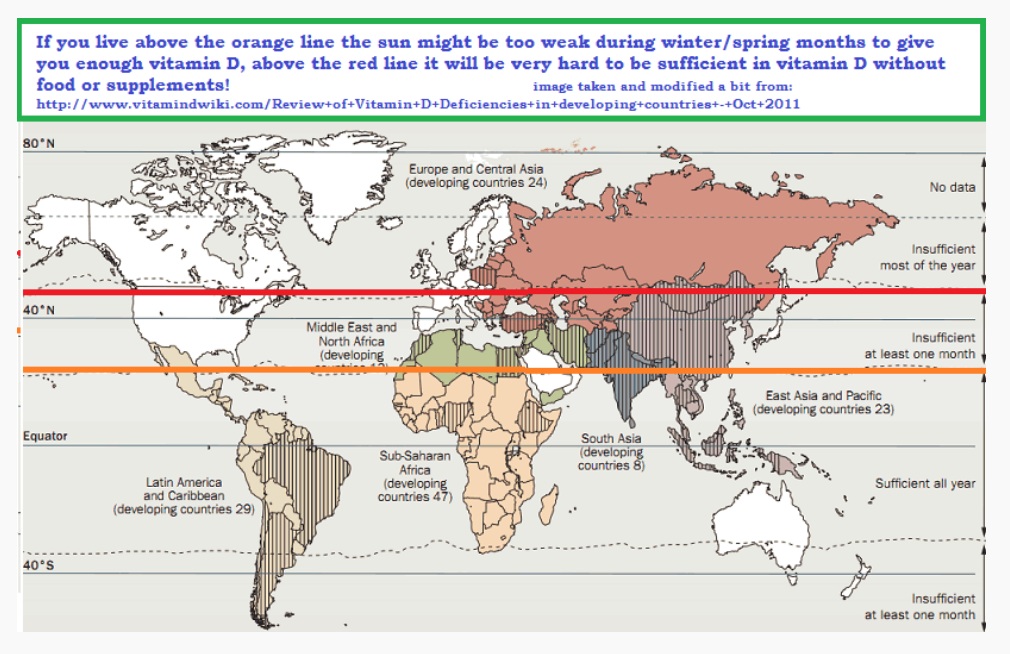
One of my clients has been concerned about the amount of vitamin B12 she should be taking.
You will find a variety of views about how much of this or that micronutrient (vitamins and minerals) you should have each day. As a general rule, optimum nutrition comes from making sure that we eat diet full of beans, whole grains, nuts, seeds, fruit and vegetables – especially dark green leafy veg and lots of berries – while cutting out the meat, dairy, eggs processed foods, and added SOS (salt, oil and sugar).
However, there are some specific areas that do need to be carefully monitored*:
- Vitamin B12 (taken as cyanocobalamin) on an empty stomach as chewable, liquid or sublingual supplement – for adults under 65 years of age, at least 250 mcg daily (micrograms – also sometimes also written as µg ), or 2,500 mcg weekly or three portions of B12-fortified foods a day (check B12 quantities in portions and compared with the above figures). For those over 65 years of age, take at least 1,000 mcg daily. (1., 2.)
- Omega 3 – 250 mg daily. Careful to choose yeast- or algae-derived long-chain omega-3 fatty acids (DHA/EPA) that are guaranteed pollutant free. (3., 4.)
- Vitamin D (The “sunshine” vitamin?). Well, yes, if you are getting enough sun; but vitamin D deficiency is shockingly common around the world (5.). Some authorities (6.) recommend as little as 10 mcg daily, while others (7.) recommend 50 mcg daily. I personally take 20 mcg daily. (I suggest you check out the map below to see where you are in the world). Then check out Dr Greger’s specific advice about when you should take supplements and when you should be able to get enough midday sun exposure: usually between 15-30 mins depending on skin type and time of year. (8.) If you are still not sure about how much sunshine and vitamin D supplementation you need, there’s much more specific information here.

- Calcium – Minimum of 600 mg daily from calcium-rich plants – low-oxalate (9.) green leafy vegetables. You might want to do some reading about the validity of concerns about kidney stones and consumption of high-oxalate green leafy vegetables such as spinach, chard, beet greens. (10., 11.)
- Iodine – 150 mcg daily supplement. I am cautious about suggesting eating seaweeds and sea vegetables as a source of iodine because of the high levels of toxins detected in many samples, especially hiziki (12.), and the excessively high levels in others, for instance kelp (13.). Wakame is regarded as having a lower concentration of toxins and safer levels of iodine, as well as some health benefits (14.). Iodised salt is recommended by some people, but I personally would never advise you to take this because it’s easy to overdo the quantity and….well, it’s salt! (15., 16.)
- Iron – Eat a variety of legumes, vegetables, nuts and seeds.**
- Selenium – Eat 4 Brazil nuts once a month. Simple! (17.)
*If you are considering making the transition from the traditional meat-based western diet to a whole food plant-based diet, I recommend having a blood test taken to check the baseline levels of the above. Then I would suggest having the same blood test taken 6 months later to monitor changes – and there are likely to be some welcome changes to levels. (I would always advise consulting your GP whenever you are considering making major changes to your diet.)
** Vitamin C (from foods) aids iron absorption. Do not consider taking any iron supplements before checking with your GP. Heme iron (in meat) is best replaced with iron from just eating a variety of plant foods. (18., 19.)
Most of my recommendation are based on advice from Dr Greger. You can have it from the “horse’s mouth” by clicking on the doctor’s mouth!
References
- https://nutritionfacts.org/2014/12/18/the-vitamin-everyone-on-a-plant-based-diet-needs/
- https://nutritionfacts.org/questions/which-type-of-b12-is-best/
- https://nutritionfacts.org/video/should-vegans-take-dha-to-preserve-brain-function/
- https://nutritionfacts.org/topics/omega-3-fatty-acids/
- https://www.ncbi.nlm.nih.gov/pmc/articles/PMC4018438/
- https://www.nhs.uk/conditions/vitamins-and-minerals/vitamin-d/
- https://nutritionfacts.org/topics/vitamin-d-supplements/
- https://nutritionfacts.org/2011/09/12/dr-gregers-2011-optimum-nutrition-recommendations/
- https://my.clevelandclinic.org/health/articles/11066-kidney-stones-oxalate-controlled-diet
- https://nutritionfacts.org/topics/greens/
- http://www.pcrm.org/health/health-topics/nutrition-and-renal-disease
- https://nutritionfacts.org/topics/sea-vegetables/
- https://nutritionfacts.org/video/too-much-iodine-can-be-as-bad-as-too-little/
- https://nutritionfacts.org/topics/wakame/
- https://www.ncbi.nlm.nih.gov/pubmed/17344781
- https://www.ncbi.nlm.nih.gov/pubmed/10667088
- https://nutritionfacts.org/video/four-nuts-once-a-month/
- https://www.pcrm.org/health/cancer-resources/diet-cancer/nutrition/iron-the-double-edged-sword
- https://nutritionfacts.org/topics/iron/
